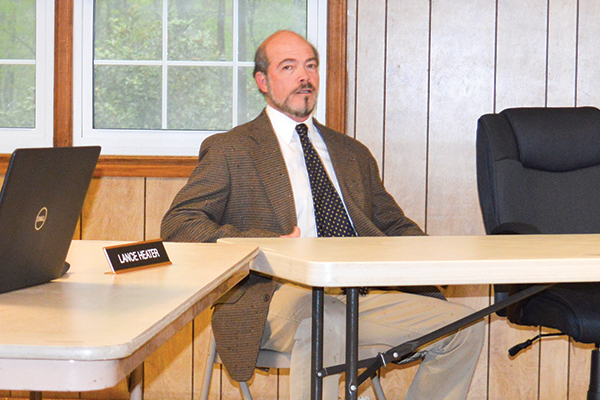The Battle of Summerfield – the ongoing, nearly year-long battle over the Summerfield Town Council seat formerly held by Todd Rotruck – is about to heat up once again: Guilford County Superior Court has set a date of Monday, Feb. 11 to hear a very rare court action known as a “quo warrento” lawsuit that could remove a sitting member of the Summerfield Town Council and put Rotruck back into that seat until his appeal is heard.
Rotruck was removed from the Town Council in April 2018 after the Guilford County Board of Elections found that Rotruck didn’t live in Summerfield and therefore wasn’t eligible to vote in the town. While the Board of Elections didn’t say anything about the implications of its decision for Rotruck’s seat on the Summerfield Town Council, North Carolina law state’s that failing to live in a municipality means “ipso, facto” that a person cannot serve on that municipal council.
In October 2018, the Summerfield Town Council voted to put Dianne Laughlin into the vacant seat. The lawsuit that will be heard on February 11 names Laughlin as the defendant, but Rotruck said this week, as he has previously, that the Town of Summerfield is the culpable party, not her. He said the way state law is written requires Laughlin be the one named in the suit.
Rotruck also said he’s eager to have his day in court with a chance to regain the seat because he hasn’t been permitted to take part in Town Council meetings since April. He said the appeal he filed in state court will take a long time to hear and a victory in the February proceeding would allow him to serve in the position he was elected to until his legal challenge has run its course.
Rotruck also said he expects the quo warrento hearing to be quite involved. Unlike some appeals, new evidence can be introduced and he said he feels as though some previous judges haven’t fully heard out the evidence regarding a number of factual matters.
“This is totally different than any other trial we’ve had,” Rotruck said of the quo warrento hearing. “In the past, we haven’t been able to bring in new evidence, but this is a whole separate other lawsuit.”
Rotruck added that, while the quo warrento hearing won’t relitigate his residency hearing, it will delve into the way his case was handled by the Town of Summerfield after the Board of Elections made its decision on his residency.
“This will probably be pretty lengthy,” he said of the hearing. “It could take two days.”
According to Rotruck, there’s no word yet on when his original appeal will be heard in Raleigh by the NC Court of Appeals.
“It will be months,” he said. “It may be heard in the fall.”
Quo warrento actions are governed by provisions in North Carolina General Statutes, Chapter 1, Article 41 – the article that covers cases where there’s a claim of unjust removal from office. It states that the Attorney General “shall” grant permission to requests to sue upon the tendering of satisfactory security to indemnify the state.
Technically, the State of North Carolina is taking the action. The NC Attorney General’s office must act as a pass-through for an action such as this because of the way state law is structured. A private citizen acting as a private citizen with no authority from the state couldn’t bring a suit to remove someone from office in the manner Rotruck is attempting to do with Laughlin.
The Attorney Generals office has stated that it doesn’t favor one side or the other in the case but only that Rotruck has met the legal requirements necessary for an action of this sort to be taken.

